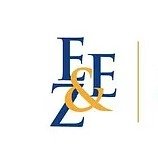Best Employment Benefits & Executive Compensation Lawyers in Illinois
Share your needs with us, get contacted by law firms.
Free. Takes 2 min.
Or refine your search by selecting a city:
List of the best lawyers in Illinois, United States
About Employment Benefits & Executive Compensation Law in Illinois, United States
Employment Benefits and Executive Compensation is a complex area of law covering all aspects of employee benefits, such as retirement plans, health insurance, stock options, bonuses, and other forms of compensation that employers provide to their employees. In Illinois, these matters are governed by a combination of federal laws like the Employee Retirement Income Security Act (ERISA), the Internal Revenue Code, and various state laws and regulations. Executive compensation further involves negotiating individualized contracts that can include severance packages, equity awards, non-compete clauses, and golden parachute agreements. Understanding your rights and obligations in this field ensures both employees and employers remain compliant and protected.
Why You May Need a Lawyer
There are various situations when a person or business may need an attorney who specializes in Employment Benefits and Executive Compensation in Illinois. You might need legal guidance if you are:
- An employee denied certain benefits such as retirement options, health insurance coverage, or bonuses
- A business tasked with designing employee benefit plans that comply with state and federal laws
- An executive negotiating employment or severance agreements
- An employer facing an audit or investigation by the Department of Labor or IRS
- An employer implementing non-compete agreements or deferred compensation plans
- Facing disputes about wrongful withheld benefits or improper plan administration
- Addressing mergers and acquisitions that impact benefit plans and executive compensation
Since the laws are intricate and heavily regulated, professional legal advice can help you avoid costly mistakes, resolve disputes, and ensure that benefits plans and contracts are fair and enforceable.
Local Laws Overview
Illinois employees and employers are subject to both federal and state regulations regarding employment benefits and executive compensation. Here are some key considerations:
- Federal Preemption: Many benefit plans, especially for private sector employees, are regulated by federal law (primarily ERISA), which may preempt state law claims.
- State Mandates: Illinois law requires coverage of certain benefits, like mental health coverage and protected leave under laws like the Illinois Employee Sick Leave Act.
- Illinois Wage Payment and Collection Act: Governs when and how final compensation, including unused vacation and earned bonuses, must be paid upon termination or resignation.
- Equal Pay Provisions: Illinois law strengthens federal anti-discrimination protections, including equal pay laws and requirements for transparency about compensation.
- Non-Compete Agreements: Illinois imposes specific requirements for enforceability of non-compete and non-solicitation clauses, including notice requirements and minimum salary thresholds.
- Public Employee Benefits: If you are a public sector employee, different rules apply, such as pension systems governed by the Illinois Pension Code.
- Health Insurance Continuation: In addition to COBRA at the federal level, Illinois has “mini-COBRA” laws expanding continuation rights for insured plans with fewer employees.
Given that benefit regulations frequently change at both the federal and state level, staying informed and compliant is vital for employers and employees alike.
Frequently Asked Questions
What are my rights if my employer suddenly terminates my health insurance?
If your health insurance coverage is terminated because of job loss or other qualifying events, you may be eligible for continued coverage through COBRA (federal law) or Illinois mini-COBRA continuation, depending on your employer’s size and insurance plan type.
Is my employer required to provide health insurance?
Under the federal Affordable Care Act, certain large employers must provide health insurance. Illinois does not require small employers to offer health coverage, but if they do, they must comply with state and federal laws regarding fairness and benefits.
Can unused vacation days or paid time off be lost if I am fired?
Illinois law requires that earned but unused vacation or paid time off must be paid out at termination, according to the employer’s policy and the Wage Payment and Collection Act.
What makes a non-compete or non-solicitation agreement enforceable in Illinois?
These agreements must be reasonable in duration and scope, protect a legitimate business interest, and comply with recent Illinois requirements, including notice to the employee and minimum earnings thresholds. Overly broad or punitive agreements are generally unenforceable.
When am I entitled to a bonus or commission?
If a bonus or commission has been earned under your employer’s written or unwritten policy or past practices, Illinois law may require it to be paid out, especially upon termination if conditions have been met.
What is ERISA and how does it affect my benefits?
ERISA is a federal law that sets minimum standards for most voluntarily established retirement and health plans in private industry, to protect individuals in these plans. ERISA preempts many (but not all) state law claims about plan benefits.
Can executive compensation include equity awards or stock options?
Yes, executive compensation commonly involves equity-based awards, such as stock options or restricted stock units. These agreements should be carefully structured to comply with tax and securities laws.
How are severance agreements handled in Illinois?
There is no Illinois law requiring severance pay, but if provided, severance agreements must comply with both state and federal law, including rules regarding waivers and release of claims, and may be negotiated as part of executive compensation packages.
Who do I contact if my retirement benefits are mishandled?
You can contact the U.S. Department of Labor’s Employee Benefits Security Administration regarding ERISA-covered plans, or the Illinois Department of Insurance for further guidance. Legal counsel can help assess claims and initiate complaints.
What happens to my benefits if my company merges or is acquired?
Company mergers and acquisitions can impact benefit plans. Employees may have benefits merged, converted, or terminated, depending on the transaction terms. Executive contracts may contain specific change-in-control provisions protecting certain compensation or benefits.
Additional Resources
These organizations and agencies offer valuable information and assistance regarding employment benefits and executive compensation in Illinois:
- U.S. Department of Labor - Employee Benefits Security Administration (EBSA)
- Illinois Department of Labor
- Illinois Department of Insurance
- Internal Revenue Service (IRS) - Employee Plans
- Legal Aid Chicago (for eligible low-income individuals)
- Illinois State Bar Association
- Society for Human Resource Management (SHRM) - local Illinois chapters
Next Steps
If you need legal assistance concerning employment benefits or executive compensation in Illinois, consider these actions:
- Gather all relevant documentation, such as employment contracts, benefits summaries, policy handbooks, correspondence with your employer, and pay stubs.
- Reach out to your human resource or benefits administrator for clarification of benefit plan terms; sometimes issues are misunderstandings that can be resolved internally.
- If the issue is not resolved or you believe your rights have been violated, contact a qualified attorney who specializes in employment law and executive compensation. They can assess your situation and explain your options.
- For disputes involving ERISA plans or discrimination, you may have short deadlines to file claims or appeals, so do not delay
- Consider utilizing resources like the Illinois Department of Labor, the U.S. Department of Labor, or local legal aid if you need cost-effective support
Understanding your rights and proactively seeking professional advice is the best way to protect yourself, your livelihood, and your business interests in the complex area of employment benefits and executive compensation.
Lawzana helps you find the best lawyers and law firms in Illinois through a curated and pre-screened list of qualified legal professionals. Our platform offers rankings and detailed profiles of attorneys and law firms, allowing you to compare based on practice areas, including Employment Benefits & Executive Compensation, experience, and client feedback.
Each profile includes a description of the firm's areas of practice, client reviews, team members and partners, year of establishment, spoken languages, office locations, contact information, social media presence, and any published articles or resources. Most firms on our platform speak English and are experienced in both local and international legal matters.
Get a quote from top-rated law firms in Illinois, United States — quickly, securely, and without unnecessary hassle.
Disclaimer:
The information provided on this page is for general informational purposes only and does not constitute legal advice. While we strive to ensure the accuracy and relevance of the content, legal information may change over time, and interpretations of the law can vary. You should always consult with a qualified legal professional for advice specific to your situation.
We disclaim all liability for actions taken or not taken based on the content of this page. If you believe any information is incorrect or outdated, please contact us, and we will review and update it where appropriate.
Browse employment benefits & executive compensation law firms by city in Illinois
Refine your search by selecting a city.















